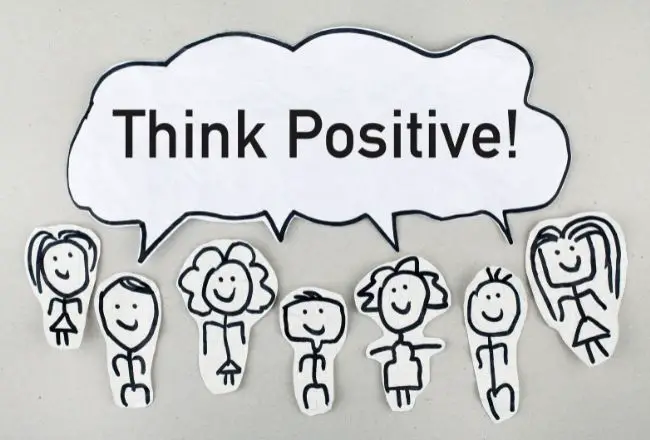Discover what well-being is and why you can indeed increase your well-being.
Well-being is the experience of health, happiness, and prosperity. It includes having good mental health, high life satisfaction, a sense of meaning or purpose, and the ability to manage stress. More generally, well-being is just feeling well.
Well-being is something sought by just about everyone because it includes so many positive things: feeling happy, healthy, socially connected, and purposeful. Unfortunately, well-being appears to be in decline, at least in the U.S. And increasing your well-being can be tough without knowing what to do and how to do it.
Can You Actually Improve Your Well-Being?
Increasing your well-being is simple; there are tons of skills you can build. But increasing your well-being is not always easy: Figuring out what parts of well-being are most important for you and figuring out how, exactly, to build well-being skills usually require some extra help.
How Long Does It Take to Improve Well-Being?
Usually, when people start consistently using science-based techniques for enhancing well-being, they begin to feel better pretty quickly—most people show notable improvements within five weeks.
But you have to stick to it. If you are feeling better after five weeks, you can’t just stop there.
Why? Well, you probably already know that if you stop eating healthy and go back to eating junk food, then you’ll end up back where you started. It turns out that the exact same thing is true for different types of well-being. If you want to maintain the benefits you gain, you’ll have to continue to engage in well-being-boosting practices to maintain your skills. So it’s really helpful to have strategies and tools that help you stick to your well-being goals — for example, a happiness and well-being plan or well-being boosting activities that you can continue to use throughout your life, such as daily positive affirmations.
Where Does Well-Being Come From?
Well-being emerges from your thoughts, actions, and experiences — most of which you have control over. For example, when we think positive, we tend to have greater emotional well-being. When we pursue meaningful relationships, we tend to have better social well-being. And when we lose our job — or just hate it — we tend to have lower workplace well-being. These examples start to reveal how broad well-being is, and how many different types of well-being there are.
Because well-being is such a broad experience, let’s break it down into its different types.
5 Major Types of Well-Being
- Emotional Well-Being. The ability to practice stress-management techniques, be resilient, and generate the emotions that lead to good feelings.
- Physical Well-Being. The ability to improve the functioning of your body through healthy eating and good exercise habits.
- Social Well-Being. The ability to communicate, develop meaningful relationships with others, and maintain a support network that helps you overcome loneliness.
- Workplace Well-Being. The ability to pursue your interests, values, and purpose in order to gain meaning, happiness, and enrichment professionally.
- Societal Well-Being. The ability to actively participate in a thriving community, culture, and environment.
To build your overall well-being, you have to make sure all of these types are functioning to an extent.
Think of it like this: Imagine you are in a car. Your engine works great, and maybe your transmission works pretty well, too, but your brakes don’t work. Because your brakes don’t work, it doesn’t really matter how well your engine works; you’re still going to have trouble going about your life.
The same is true for your well-being. If everything else in your life is going great, but you feel lonely, or you’re eating unhealthfully, other areas of your life will be affected, and you likely won’t feel as well as you want to.
Because each part of well-being is important to your overall sense of well-being, let’s explore stategies for develoing each type of well-being:
How to Develop Emotional Well-Being?
To develop emotional well-being, we need to build emotional skills — skills like positive thinking, emotion regulation, and mindfulness, for example. Often, we need to build a variety of these skills to cope with the wide variety of situations we encounter in our lives. When we have built these emotional well-being skills, we can better cope with stress, handle our emotions in the face of challenges, and quickly recover from disappointments. As a result, we can enjoy our lives a bit more, be happier and pursue our goals a bit more effectively.
How to Develop Physical Well-Being?
To develop our physical well-being, we need to know what a healthy diet and exercise routine looks like, so that we can implement effective strategies in our daily lives. When we improve our physical well-being, not only do we feel better, our newfound health can also help prevent many diseases, heal our guts, boost our emotional well-being, and limit the number of health challenges we have to deal with in our lives.
Unfortunately, it’s possible to eat healthy but still be unhealthy. We can accidentally miss important foods or nutrients. Or we can overburden ourselves with toxins from plastic or processed food. As a result, we may need to eat additional foods, detox our bodies, or prevent these toxins from entering our bodies again. This is why it’s essential to learn about health, so that we can make the right changes — those that lead to long-term health and well-being.
How to Develop Social Well-Being?
To develop social well-being, we need to build our social skills, like gratitude, kindness, and communication. Social skills make it easier for us to have positive interactions with others, helping us to feel less lonely, angry, or disconnected. When we have developed our social well-being, we feel more meaningfully connected to others.
It’s important to know that building social well-being is one the best ways to build emotional well-being. When we feel socially connected, we also tend to just feel better, have more positive emotions, and we are able to cope better with challenges. This is why it’s essential to build our social well-being.
How to Develop Workplace Well-Being?
To develop our workplace well-being, we need to build skills that help us pursue what really matters to us. This can include building professional skills which help us to advance more effectively, but it also includes things like living our values and maintaining a work-life balance. These skills let us enjoy our work more, helping us to stay focused, motivated, and successful at work. When we have developed workplace well-being, our work, and therefore each day, feels more fulfilling.
Because we spend so much time at work, building our workplace well-being has a big impact on our overall well-being.
How to Develop Societal Well-Being?
To develop societal well-being, we need to build skills that make us feel interconnected with all things. We need to know how to support our environment, build stronger local communities, and foster a culture of compassion, fairness, and kindness. These skills help us feel like we’re part of a thriving community that really supports one another and the world at large. When we cultivate societal well-being, we feel like we are a part of something bigger than just ourselves.
Although each of us only makes up a tiny fraction of a society, it takes all of us to create societal well-being. If each of us did one kind act for someone else in our community, then we would live in a very kind community. Or if all of us decide we are going to recycle, then suddenly we create a world with significantly less waste. In order to live in a healthy society, we too need to contribute to making a healthy society.
There Is No Magic About Improving Well-Being
Keep in mind, it takes time and effort to build any new skill set — that includes well-being skills. It’s important to be realistic with yourself about what you can reasonably accomplish in a given amount of time. Having unrealistic expectations can lead you to give up before you’ve reached your well-being goals. So it’s key to create a realistic plan for your well-being, stick to it, and take small actions every day that add up to big improvements over time.



